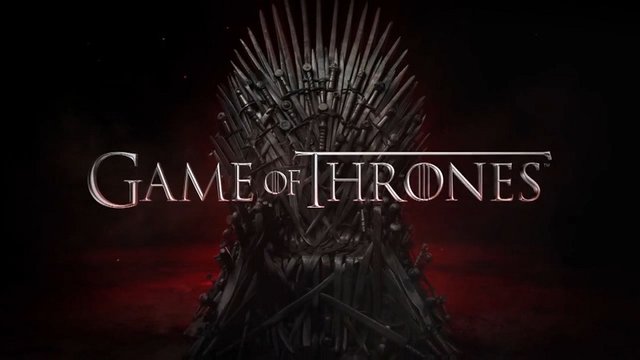Why Technology Hasn't Advanced in Game of Thrones
For as far back as we can trace the history of Westeros, which is generally accepted to be around 8,000 years, the technology of the world has been more or less stagnant, stuck in the equivalent of our European Middle-Ages.
In the world of A Song of Ice and Fire, there are only a few nods to technological advancements. Firstly, the First Men brought weapons of bronze to help fight against the Children of the Forest who only used wooden weapons. Then, the Andals brought iron weapons which was more advanced than the First Men's, leaving the series currently at the pinnacle of the Iron Age. This was the last real technological development we are aware of in the series.

So there has been some technological advancement, but 8,000 years is a long time to go from bronze-age culture to iron age culture. And with Dragons back in the world of Westeros, and the White Walkers soon to be beating down the door on civilization with an army of the dead, what is the reason for such a slow rate of technological advancement, which could clearly help the people overcome some of the upcoming threats? Let’s find out….
All world analysis aside, it is important to point out that Westeros and its surrounding continents are stagnant because George R.R. Martin wants them to be. He designed the story around swordfights, castle sieges, magic and dragons. The atmosphere of the series and the lack of technology are merely conventions of the fantasy genre. In Westeros, society lives according to the rhythms of mystic forces, rather than the conception of technology. It just doesn’t seem to be elevated to the forefront of their minds. Still, it’s possible to explore Game of Thrones’ lack of technological advancement as being more than just a genre trope. Given Martin’s inclination to draw from real world medieval history as inspiration for his work and his fidelity to real world history and politics, this question can certainly be examined in the work. We can attempt to identify Westerosi technology as being stunted by a myriad of prevailing, world-specific circumstances.
For me I believe there have been 4 primary limiting factors that have held back Westeros’ technological advancement, all of which we’re going to explore in detail. So let’s start with arguably the most obvious one...the weather. Stable agriculture capable of scaling and reliably feeding large armies and centralized cities is a key step in economic development, and the weather patterns of Westeros undermine this.
In our world, we are privy to when, and how long, winter will last. In Westeros, winter can last for years at a time, and the only weather forecast you have is the ambiguous: “Winter is coming”. The combined unpredictability and extreme length of winter makes long-term investment difficult, and could be a major barrier to moving past subsistence farming. The weather is an important factor in the North, which gets the harshest Winters. But even mild elongated periods of difficulty in harvest crops could not only make the Westerosi peasantry more dependent on their lords for survival, but also just make them in general more conservative and less favorable to innovation that might not pay dividends and leave them hanging to dry in the face of a worse climate. It's worth noting that the biggest centre for innovation and scholarship is in Oldtown, which has an extremely mild climate and is located near the southern tip of Westeros. However one issue this theory faces is that several areas of the world, such as Oldtown, do not experience such harsh winters, and don’t appear to be any more meaningfully advanced than the kingdoms further north. Additionally, even if economic growth was significantly reduced due to the weather, you would still expect to see some level of development over 8000 years. But in Game of Thrones how important is technological development in actuality? Who needs technology in a world of magic?

According to A Song of Ice & Fire, magic was a potent force in the world up to and even somewhat during the reign of the Targaryens. The Valyrians wielded magic adeptly, and much of their bloody conquest of the Valyrian Freehold was enabled by their command of sorcery. If we are able to assume that there existed functional sorcery beyond military use, it's easy to see how technological advancement could have secondary importance to the study of magic. However what may be more important is the role of magic in preserving existing social orders, something that is explicitly described in the case of the High Lords of Valyria. Just as importantly, they had flights of dragons, which basically allowed them to sweep across western Essos with virtually no real opposition in the open field. Dragons, in a sense, act as a nuclear deterrent...he who has the dragons has the power. Dragons can halt progress, a topic already covered incredibly well by the Nerdwriter in a video which I would highly recommend checking out. They certainly are a factor in slowing progression, however they are not the whole story. If anything one could imagine the presence of dragons compelling civilisation to search for more powerful, more explosive weaponry. This is where the lack of gunpowder in Westeros emerges as a limiting factor of technological development.

A surprising amount of modern technology has come about as a result of the discovery of gunpowder and explosives. Without gunpowder, a lot of these advances would have been impossible to come by. In addition to not providing firearms to the armies of the world, essential techniques such as dynamite mining and quarrying are impossible in Westeros and Essos. Without chemical explosives (Apart from Wildfire which we have seen to be almost completely uncontrollable), critical ores and other resources are impossible to be harvested by the modern civilizations in Game of Thrones. This leaves little chance for technology critical materials like aluminum to be developed. It also leaves control in the hands of those with dragons at their disposal. The lack of gunpowder does play a role in holding back technology, although only a minute one in my view. A failure to discover gunpowder points to a far larger issue in Westeros - a fundamental lack of innovation and invention. Identifying the root cause of this is the key to understanding the lack of technological advancement in Westeros. And it appears there is an identifiable cause for this...

The Maesters have worked as solemn advisors for the many fiefdoms in the land, with their order constituting a proto-scientific community of sorts that has lasted for thousands of years. Upon first glance they would appear to be a positive force for progress, but this is a misconception. First of all, the Maesters have a monopoly on historical and scientific knowledge that they jealously guard from the masses. In Westeros, education is the sole property of the maesters and The Citidel. To be educated at The Citidel requires that the student become a maester. In order to gain access to this knowledge you have to be a man, swear off women forever, and promise to serve a random lord in a far-flung corner of Westeros. Contrast this with the Monastic Schools of the Catholic Church which started with similar restrictions but eventually evolved into the modern University. The Maesters never evolved, and as a result never produced the growth effects early universities brought to Medieval Europe, for example Samuel Tarly in the most recent season of Game of Thrones grew so frustrated with the Maesters beligerant refusal to heed his warnings about White Walkers, and to help him advance in his learnings, that he actually left the Citadel!
By maintaining their intellectual monopoly, the Maesters ensure a spot is open to their order in every castle, but they significantly inhibit growth in the process. The realm would be much better served if they would open up their libraries, allow anyone to come study with them, and actively partner with craftsmen in the creation of new commercial technologies. But this would be a very risky strategy to undertake. In a very feudalistic and non-democratic world like the one in Game of Thrones, the creation of technology that would disrupt the status quo in Westeros and Essos through creative destruction would be extremely detrimental to those in power, incentivising those with knowledge to suppress it. Technological advancement is a function of proliferate education and an environment that fosters disruptive innovation, neither of which exist in the world of Game of Thrones, due primarily to the work of the Maesters, giving rise to a society where technology has not advanced, even over such a long period of time.
Westeros has been entrenched in this technological winter for nearly 8000 years. Where some people see a convenient plot device to make for an engaging fantasy series, I see it as an opportunity to imagine what human society might have looked like if our world had a different set of rules, had different prevailing circumstances. In some ways, fiction can act as a medium to run simulations of our own history, changing variables and learning new things about ourselves in the process. Others may argue that this is reading too much into Martin’s work. On the contrary, I think it stands as a testament to the vibrancy of his world-building ability that we can draw implications from his work far beyond that which he originally conceived.Technological progress isn’t certain in Westeros, nor is it in our own world. The evolution of civilization isn’t always an inevitability, it’s contingent on human action, on human endeavour, on the ability, even in the deepest depths of Winter, to keep innovating towards a brighter tomorrow.